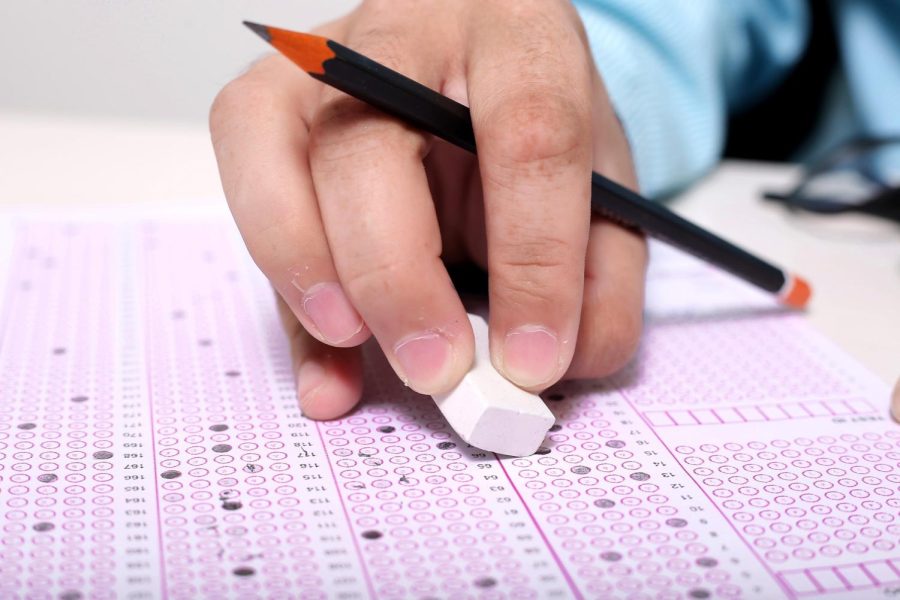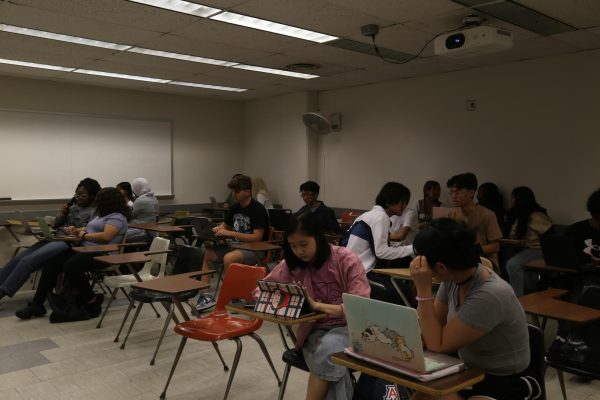OPINION: New cumulative grading policy will leave students behind

For the 2022-2023 school year, the grading policy looks different for Townsend Harris students. Unlike recent years, students’ grades will not reset with the new semester, leaving a cumulative average that will last until the end of June. The lack of a grade reset is detrimental because it adds to student stress in the spring, makes it more difficult for improvements to be made, and was communicated a month into the school year without much clarity, causing confusion among students.
To alert the student body of the change, the administration sent out an email on October 14, over a month into the 2022 fall semester, with a two-page PDF document attached outlining important information regarding this year’s grading system. With regards to the new grading policy, the document said, “During the 2022-2023 school year, Townsend Harris High School is annualized. Grades and credits will be awarded on June 20th only on a permanent transcript.”
However, several students mentioned that until recently, they were unaware of the change in the grading policy and were informed at a later date by their teachers, peers, and a recent article published by The Classic detailing the ins and outs of the new policies.
Many students expressed that they hadn’t heard of the new policy at all, still under the presumption that grading would remain the same from the 2021-2022 to the 2022-2023 school year. This lack of communication about the new policy was worsened by the Department of Education’s failure to implement an usable official grading system for students after the discontinued use of Pupilpath. The cumulative grading policy was first implemented during the 2019-2020 school year. However, it was reverted back to a semester system the following school year due to the pandemic.
Compared to the annualized policy, the second semester reset was much more conducive to students’ pursuit of academic achievement. Having one cumulative grade prolonged over the course of the year is a lot harder to improve on because if you fail an exam at the beginning of the year, that continually weighs on your GPA. An unpleasant start to a student’s year or a period of academic struggle, due to school-related or outside sources of stress might end up significantly contributing to their final average. Moreover, while students may have more time to maintain or raise their averages, the smaller weight of a low grade also applies to high grades. A high grade may no longer have the desired effect of substantially raising one’s average, particularly as you enter into the second semester where the amount of grades collected is high.
The added stress of maintaining or raising previous semester averages will only increase. As junior Wiktoria Sadowska said, “With annualized grading, it is more likely that I will push off the work of raising my grades because I have until the end of the year.”
At the end of the year, with Regents and Advanced Placement tests nearing, students are already faced with unhealthy amounts of stress, and the imposition of a final grade only adds to that. The separation of the two semester grades allowed for an academic refresh as well as a mental relief, allowing new academic goals to be set without the burden of past class performance.
On top of creating a stifling environment for student growth, the new grading policy no longer highlights a student’s improvement throughout the year. In the past, the first semester grade allowed students to understand which subject areas to focus on, and the work they put in to improve their grades was often shown in the following semester grade. For senior Maggie Huang, for example, the two semester grades from her junior year reflected growth on her transcript when applying to colleges.
While the grading policy is up to the decisions of the THHS administration, it heavily impacts student experience, as shown by this school year’s change to an annualized policy. It is alarmingly evident that students are negatively impacted by this recent change, but it is likely something that they will have to adjust to over this school year and those following.
Your donation will support the student journalists of The Classic. Your contribution will allow us to purchase equipment, support our extracurricular events, celebrate our staff, print the paper periodically, and cover our annual website hosting costs.































